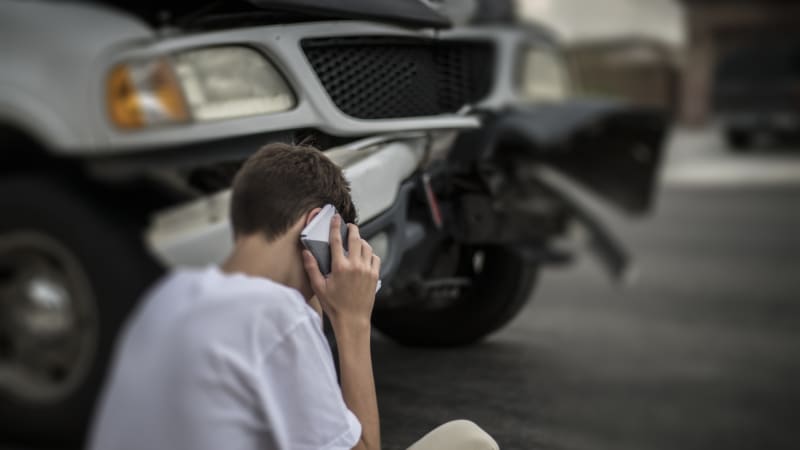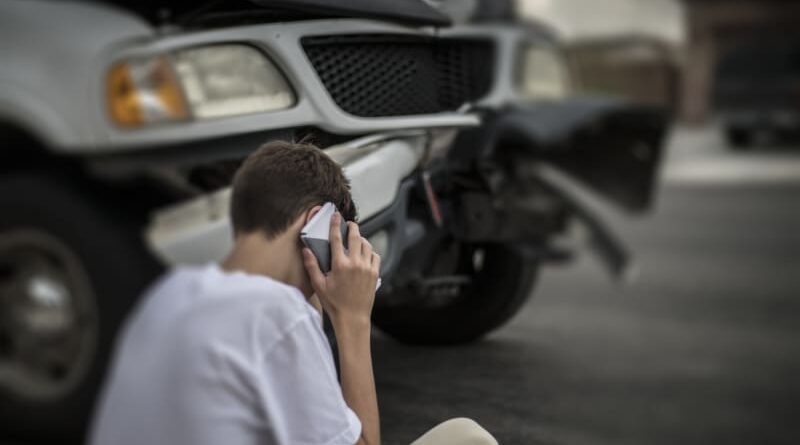What is liability insurance? – Autoblog

Automobile accidents happen. That’s just a fact we all need to come to terms with. From a bumper tap to having your car totaled, it’s a stressful event, and things get significantly worse if it’s your fault. Besides the feelings of guilt, an accident also exposes you to potentially large financial burdens. That’s where car insurance comes in. But what is liability insurance? Unlike your usual collision, comprehensive and medical coverage that protects you and your vehicle, car liability insurance covers the cost of damage to other vehicles, people and property.
Let’s say you get in a minor fender bender that is your fault. Maybe you couldn’t stop in time when traffic came to an abrupt halt and you rear-ended another vehicle. You’re physically fine, if not a bit flustered. Your car has sustained some cosmetic damage that your collision insurance policy covers. Unfortunately, the vehicle you bumped into received the brunt of the impact and the driver is complaining of a sore neck. Car liability insurance ensures you won’t have to pay for their vehicle repairs or medical bills — but there are limitations.
Most states make car liability insurance mandatory for all drivers and also have minimum insurance coverage requirements. In California, for example, drivers have to carry $15,000 in liability coverage for bodily injury per person, $30,000 for bodily injury per accident, and $5,000 for property damage per accident.
In the aforementioned scenario, we’ll imagine the driver had a minor whiplash that would have cost them $2,000 in medical expenses and $3,500 to fix their vehicle. Those fall well within the coverage for a California-based driver, which means you wouldn’t have to pay anything out-of-pocket to make them whole again.
In a more extreme accident where you exceed your insurance coverage for medical and property, you’d be considered underinsured. It’s possible that you’d be on the hook for the difference. If, however, the other driver has uninsured/underinsured coverage, their insurance will pay for the difference. Some states do require uninsured/underinsured coverage for this very reason. You can further protect yourself by increasing the coverage of your liability policy or adding an umbrella policy that provides additional protection in the case of a serious accident.
In most cases, liability insurance will also cover you in the event you make the terrible decision of driving recklessly or while intoxicated and get in a wreck, but you’ll need to read the fine print to confirm that. There are limitations, though. If it’s deemed criminally negligent or intentional, there’s a chance you’ll be personally responsible for all losses.
Liability insurance is more affordable than collision and comprehensive coverage, but your driving history will affect the cost. If you have a clean record and have been driving for a while, your premium should be fairly low. If you have moving violations, accidents, or other claims on your record, you should expect to pay more because you pose a greater risk to your insurer.
Hopefully by now, it’s clear that car liability insurance is a good idea, even if you consider yourself the world’s greatest driver. This holds true in the few states that don’t mandate it, but they do have other requirements. New Hampshire doesn’t require liability insurance, but you’ll have to prove that you meet the state’s minimum financial responsibility requirements. In South Carolina and Virginia, you can pay an uninsured motorist fee of $500 and $600 respectively, but that means you’ll be responsible for any damage or injuries.
Determining the amount of coverage for yourself will come down to what is required by your state, how much you can afford beyond that, and perhaps if your state requires uninsured/underinsured coverage. If you’re in one of those states, you might feel a bit more comfortable with lower coverage levels.
As with most things, it pays to do your homework on what’s required to make the best decision. We recommend asking direct questions about these requirements and supplemental insurance. We also suggest shopping around for the best price and checking out reviews of insurers to see which might be the best fit for you. Above all, pay attention behind the wheel and drive responsibly. With any luck you’ll never need to use your liability insurance, but it’s good to have just in case.




